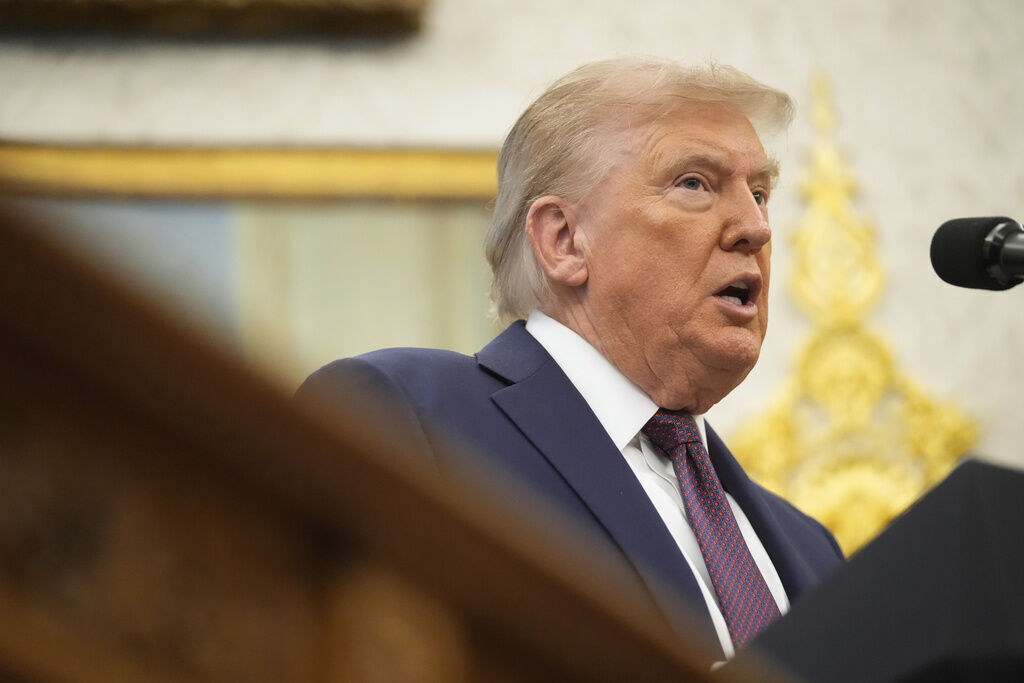Opioid settlement payouts hit Denver, Aurora, state ed board puts $180 million toward construction | WHAT YOU NEED TO KNOW

Today is June 20, 2023 and here’s what you need to know:
Denver, Aurora and thousands of local governments nationwide are receiving settlement money from companies that made, sold, or distributed opioid painkillers, such as Johnson & Johnson, AmerisourceBergen and Walmart.
In the case of Denver, the city so far has received nearly $2 million in five installments in the last two years. In Aurora, the figure stood at a little more than $500,000.
Colorado is due a total of $385 million over a number of years, of which 10% will be controlled by the state, 80% by local governments and 10% by the Colorado Opioid Abatement Council.
In Colorado, opioids have killed more than 8,500 people over the past two decades. In 2020 alone, Colorado saw roughly 1,500 drug overdose deaths, nearly two-thirds of which were opioids, according to the Colorado Health Institute. The 1,500 drug overdoses in 2020 represented a nearly 40% increase over the previous year.
The Colorado Board of Education approved $180 million in grants across the state from a prioritized list of 17 Building Excellent Schools Today (BEST) school construction projects.
Board members approved the grants during their monthly meeting last week.
Lawmakers enacted the “Building Excellent Schools Today Act” or “BEST” in 2008 to address the limited capacity many Colorado schools have to replace aging facilities.
Since 2008, BEST has contributed more than $3.5 billion in grants – which are designed to improve health, safety, security and technology in Colorado’s public schools.
More than half of the grants will be funded, in part, by the Colorado State Land Board, marijuana excise tax, the Colorado Lottery and earned interest. Projects include roof replacements, fire alarms and security upgrades as well as other major renovations.
Awardees will be expected to contribute about $79 million in matching funds.
Two of the projects are contingent on local approval of bonds by district voters.
A federal judge has refused to dismiss the lawsuit of a former Weld County schools superintendent who alleges her school board fired her after she stood up against multiple incidents of racism, sexism and homophobia involving one of the district’s principals.
Leslie Arnold led Weld County School District RE-5J from 2018 to 2021, where she reportedly received positive performance reviews. However, days after Arnold sent an email decrying the “cover-up” of a principal’s problematic behavior, the elected board of education terminated her contract.
On June 14, U.S. District Court Judge Nina Y. Wang denied the school district’s request to dismiss the lawsuit. She found Arnold had credibly alleged the board fired her because of “protected activity” under civil rights law – specifically, that she opposed leaving Principal Brian Littlefield in charge of Roosevelt High School given multiple, substantiated incidents of discrimination.
“There are no ‘magic words’ necessary to qualify for protected opposition,” Wang wrote. Instead, “the employee simply must convey to the employer his or her concern that the employer has engaged in an unlawful practice prohibited by discrimination law.”
The Colorado Attorney General’s Office employs a handful of recent law school graduates who serve as Ralph L. Carr Appellate Fellows, where they get immediate experience handling cases before the state’s two highest courts.
“We wanted to figure out a way to bring newer lawyers into the office and give them real, substantive experience while also addressing some of the needs the office had,” Eric R. Olson, Colorado’s solicitor general until recently, told Colorado Politics. “And one of the needs is our backlog in criminal appeals.”
Olivia Probetts joined the Department of Law for a two-year stint as a Carr Fellow in 2021, shortly after graduating from the University of Chicago’s law school. She spoke to Colorado Politics about her time litigating criminal appeals and other projects – including a recent case the members of the U.S. Supreme Court heard in April.
U.S. Secretary of State Antony Blinken met on Monday with Chinese President Xi Jinping and said they agreed to “stabilize” badly deteriorated U.S.-China ties, but America’s top diplomat left Beijing with his biggest ask rebuffed: better communications between their militaries.
After meeting Xi, Blinken said China is not ready to resume military-to-military contacts, something the U.S. considers crucial to avoid miscalculation and conflict, particularly over Taiwan.
Still, China’s main diplomat for the Western Hemisphere, Yang Tao, said he thought Blinken’s visit to China “marks a new beginning.”
“The U.S. side is surely aware of why there is difficulty in military-to-military exchanges,” he said, blaming the issue squarely on U.S. sanctions, which Blinken said revolved entirely around threats to American security.
Yet Blinken and Xi pronounced themselves satisfied with progress made during the two days of talks, without pointing to specific areas of agreement beyond a mutual decision to return to a broad agenda for cooperation and competition endorsed last year year by Xi and President Joe Biden at a summit in Bali.
And, it remained unclear if those understandings can resolve their most important disagreements, many of which have international implications. Still, both men said they were pleased with the outcome of the highest-level U.S. visit to China in five years.














